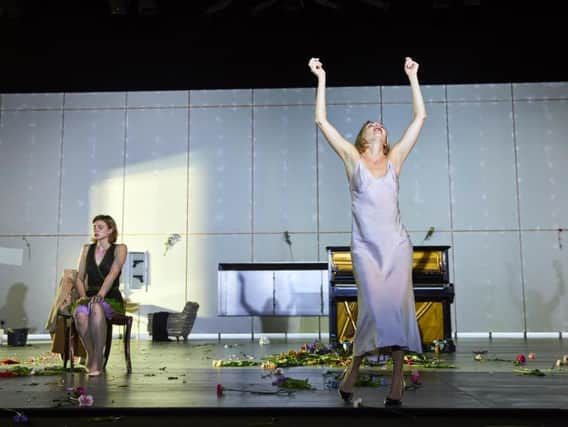Review: Hedda Gabler on MK stage is a treat for fans of timeless drama
This article contains affiliate links. We may earn a small commission on items purchased through this article, but that does not affect our editorial judgement.


The skill of Henrik Ibsen lay in crafting female characters of such depth and complexity that they continue to captivate audiences over a century after the playwright’s death, ensuring no possibility of second guessing the opinions, emotions and reactions that spill from those women who, despite a lack of social standing at the time of their conception, naturally take centre stage.
Hedda Gabler is, perhaps, the epitome of Ibsen’s creations. She’s compelling and manipulative, and, in this National Theatre production courtesy of award winning playwright Patrick Marber and directed by Ivo van Hove, superbly portrayed by Lizzy Watts.
Advertisement
Hide AdAdvertisement
Hide AdThe staging is contemporary. An open box set, all angles and minimalism, gives space for the angst that oozes from the newly married yet already bored Hedda. “I’ve no talent for life,” she declares while directing her energy at infiltrating the relationships of others. At the same time everyone else imposes a similar attitude on her. From the academic and animated husband, Tesman (Abhin Galeya deftly balancing tenderness with devotion and good, if naïve, intentions), to his aunt, and the couple’s friends, they all chip away, determined to manoeuvre Hedda to fit their own priorities.
But as an aura of claustrophobia cascades over Hedda, the boarding up of a large window compounds her fragility, leaving the young wife increasingly entrenched in her own thoughts.
The more Hedda is imposed upon, the less she cares about herself, getting her kicks, instead, from upset and disaster. At times whimsical, always self centred and forever demanding, she states, “There’s beauty in this,” on hearing of Lovborg’s suicide. Does this make Ibsen’s leading character emotionally barren? Or vulnerable? If the latter, how does this explain a determination to intelligently scheme, revelling in anguish, her own as well as others?
This powerful production is a treat for fans of timeless, quality drama. In addition, by capturing one of theatre’s most iconic female roles, Lizzy Watts has revealed not only a depth of understanding of Ibsen’s women, but a professional maturity that shouldn’t be missed.
* Hedda Gabler runs until March 3. Visit atgtickets.com/MiltonKeynes to book.